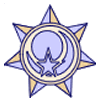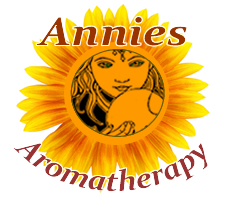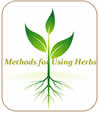Belladonna Atropa belladonna

- Common Names
- Belladonna , Deadly nightshade
- Botanical Name
- Atropa belladonna
- Family
- SOLANACEAE
Medicinal Uses & Benefits of Belladonna
- Properties: * Nervine * Poison * Psychedelic
- Constituents: atropine,belladonnine ,choline,esculetin,hyoscyamine,nicotine ,scopolamine,tropine ,umbelliferone
How to Use: Belladonna
Belladonna, or deadly nightshade is no longer used in herbal medicine. Its leaves, roots and black berries are dangerous. They contain a class of highly toxic chemicals called tropance alkaloids. They are found in other plants in the Solanaceae family, such as thornapple and jimsonweed (Datura stramonium), angel's trumpets (Brugmansia spp.), henbane (Hyoscyamus niger), and European mandrake (Mandragora officinarum). A prominent feature of the tropane alkaloids is their ability to produce hallucinations and delirium, which may explain the hold these plants have on our imaginations and folklore. 1
Preparation Methods & Dosage :Only the most skilled herbalists should use this plant in highly controlled exact dosages.
Belladonna Side Effects: Poison. Do not take
History and Traditions & Folklore
The name Atropa alludes to the toxicity of the herb; it is derived from Atropos, the name of the Greek Fate who cuts the thread of life. In Italian, belladonna means "fair lady". The juice of this plant which is native to central and southern Europe dilates the pupils, which in ancient Rome supposedly enhances beauty. It is a cold Saturnine plant. The common Nightshade is wholly used to cool hot inflammations either inwardly or outwardly, being no ways dangerous to any that use it, as most of the rest of the Nightshades are; yet it must be used moderately. The distilled water only of the whole herb is fittest and safest to be taken inwardly. The juice also clarified and taken, being mingled with a little vinegar, is good to wash the mouth and throat that is inflamed. But outwardly the juice of the herb or berries, with oil of roses and a little vinegar and ceruse laboured together in a leaden mortar, is very good to anoint all hot inflammations in the eyes. It also doth much good for the shingles, ringworms, and in all running, fretting and corroding ulcers, applied thereunto. The juice dropped into the ears, eases pains thereof that arise of heat of inflammations. And Pliny saith, it is good for hot swellings under the throat. Have a care you mistake not the deadly Nightshade for this; if you know it not, you may let them both alone, and take no harm, having other medicines sufficient in the book.
It is a cold Saturnine plant. The common Nightshade is wholly used to cool hot inflammations either inwardly or outwardly, being no ways dangerous to any that use it, as most of the rest of the Nightshades are; yet it must be used moderately. The distilled water only of the whole herb is fittest and safest to be taken inwardly. The juice also clarified and taken, being mingled with a little vinegar, is good to wash the mouth and throat that is inflamed. But outwardly the juice of the herb or berries, with oil of roses and a little vinegar and ceruse laboured together in a leaden mortar, is very good to anoint all hot inflammations in the eyes. It also doth much good for the shingles, ringworms, and in all running, fretting and corroding ulcers, applied thereunto. The juice dropped into the ears, eases pains thereof that arise of heat of inflammations. And Pliny saith, it is good for hot swellings under the throat. Have a care you mistake not the deadly Nightshade for this; if you know it not, you may let them both alone, and take no harm, having other medicines sufficient in the book.
Nicholas Culpeper, 1653
- Hoffmann, David (2010-12-15). Medical Herbalism: The Science and Practice of Herbal Medicine (p.122). Healing Arts Press.










